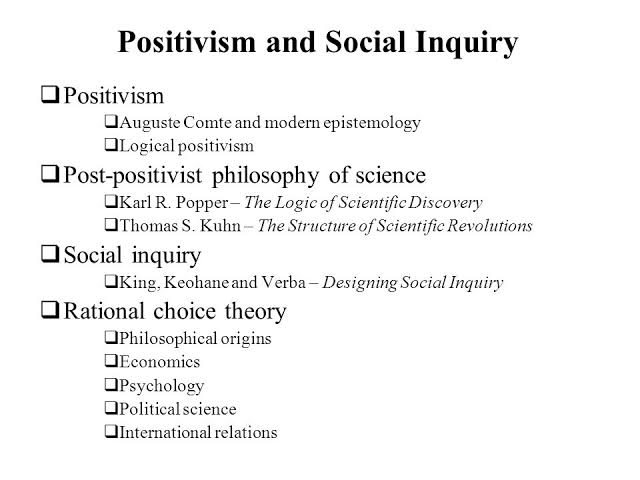W.B.C.S. Examination Notes On – Political Science – Positivism.
W.B.C.S. Exam which is one of the toughest exam and is conducted in three stages- Prelims, mains, and interview. Optional subjects are considered as the significant part of W.B.C.S. Mains exam. The Political science optional subject is a General studies friendly subject. It is a decent optional subject with around 50-60% syllabus coordinating with the General Studies Paper. It is a very dynamic and constantly evolving subject. Candidates seeking to choose political science, ought to be more aware of the paradigm shift in core area than in the changes in the revised syllabus. In fact, the revision of Political science has paved a way for scoring more marks in this particular optional. The Paper I of political science paper I deals with the Political Theory and Indian Politics. The Paper II deals with Comparative Political Analysis and International Politics.As a philosophical ideology and movement, positivism first assumed its distinctive features in the work of Comte, who also named and systematized the science of sociology. It then developed through several stages known by various names, such as empiriocriticism, logical positivism, and logical empiricism, finally merging, in the mid-20th century, into the already existing tradition known as analytic philosophy.Continue Reading W.B.C.S. Examination Notes On – Political Science – Positivism.
The basic affirmations of positivism are (1) that all knowledge regarding matters of fact is based on the “positive” data of experience and (2) that beyond the realm of fact is that of pure logic and pure mathematics. Those two disciplines were already recognized by the 18th-century Scottish empiricist and skeptic David Hume as concerned merely with the “relations of ideas,” and, in a later phase of positivism, they were classified as purely formal sciences. On the negative and critical side, the positivists became noted for their repudiation of metaphysics—i.e., of speculation regarding the nature of reality that radically goes beyond any possible evidence that could either support or refute such “transcendent” knowledge claims. In its basic ideological posture, positivism is thus worldly, secular, antitheological, and antimetaphysical. Strict adherence to the testimony of observation and experience is the all-important imperative of positivism. That imperative was reflected also in the contributions by positivists to ethics and moral philosophy, which were generally utilitarian to the extent that something like “the greatest happiness for the greatest number of people” was their ethical maxim. It is notable, in this connection, that Comte was the founder of a short-lived religion, in which the object of worship was not the deity of the monotheistic faiths but humanity.
There are distinct anticipations of positivism in ancient philosophy. Although the relationship of Protagoras—a 5th-century-BCE Sophist—for example, to later positivistic thought was only a distant one, there was a much more pronounced similarity in the classical skeptic Sextus Empiricus, who lived at the turn of the 3rd century CE, and in Pierre Bayle, his 17th-century reviver. Moreover, the medieval nominalist William of Ockham had clear affinities with modern positivism. An 18th-century forerunner who had much in common with the positivistic antimetaphysics of the following century was the German thinker Georg Lichtenberg.To view Political Science Optional Syllabus , Click Here.
The proximate roots of positivism, however, clearly lie in the French Enlightenment, which stressed the clear light of reason, and in 18th-century British empiricism, particularly that of Hume and of Bishop George Berkeley, which stressed the role of sense experience. Comte was influenced specifically by the Enlightenment Encyclopaedists (such as Denis Diderot, Jean d’Alembert, and others) and, especially in his social thinking, was decisively influenced by the founder of French socialism, Claude-Henri, comte de Saint-Simon, whose disciple he had been in his early years and from whom the very designation positivism stems.
Please subscribe here to get all future updates on this post/page/category/website


 +919674493673
+919674493673  mailus@wbcsmadeeasy.in
mailus@wbcsmadeeasy.in







































































































